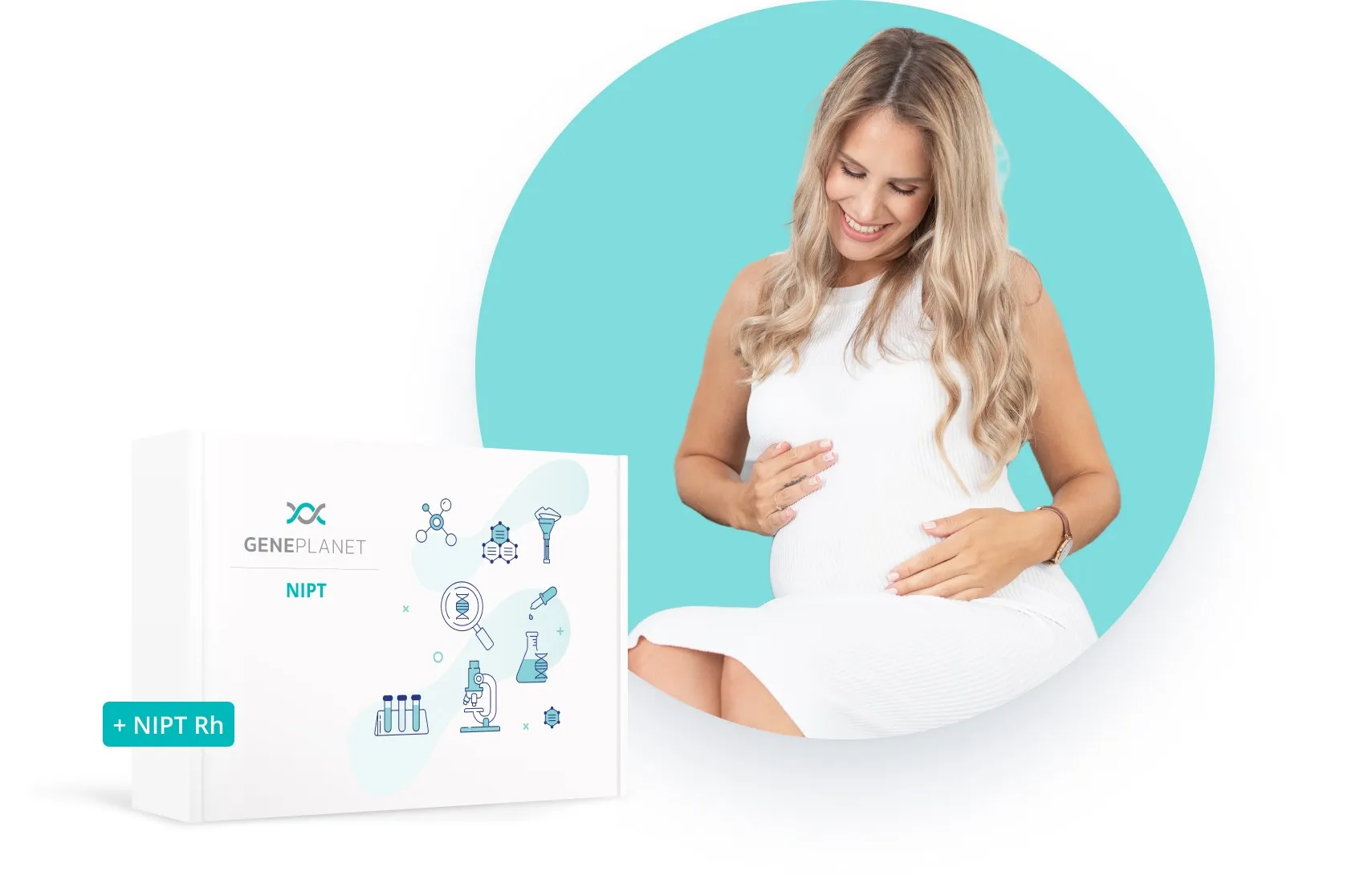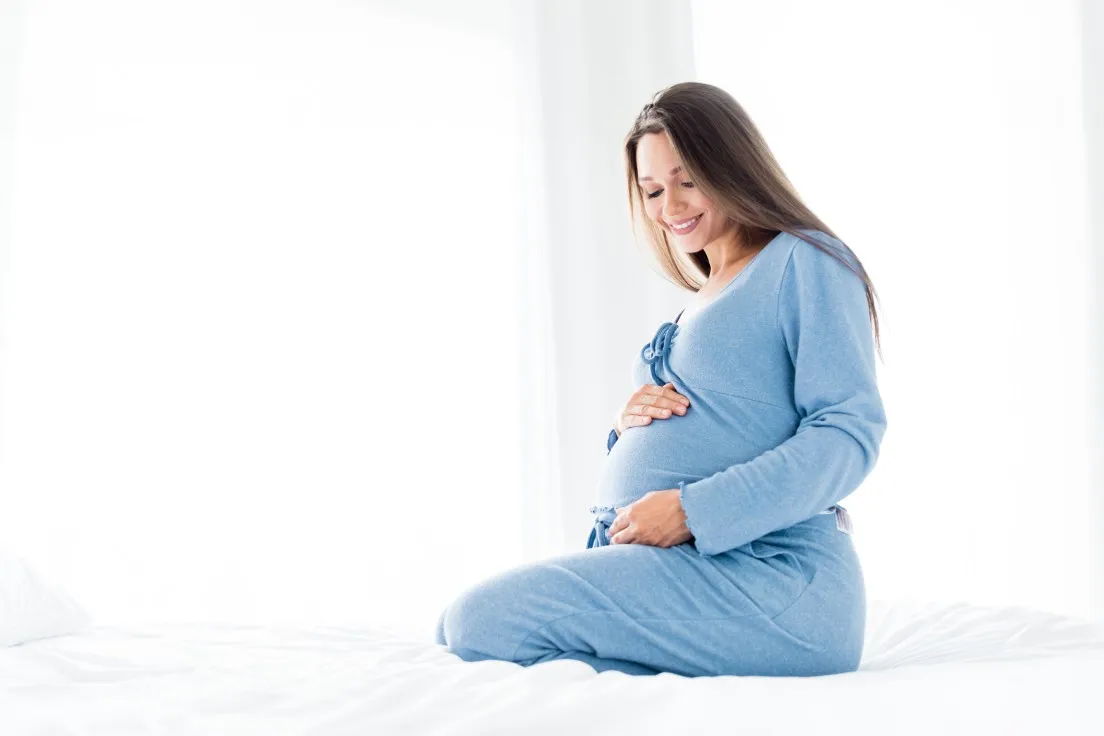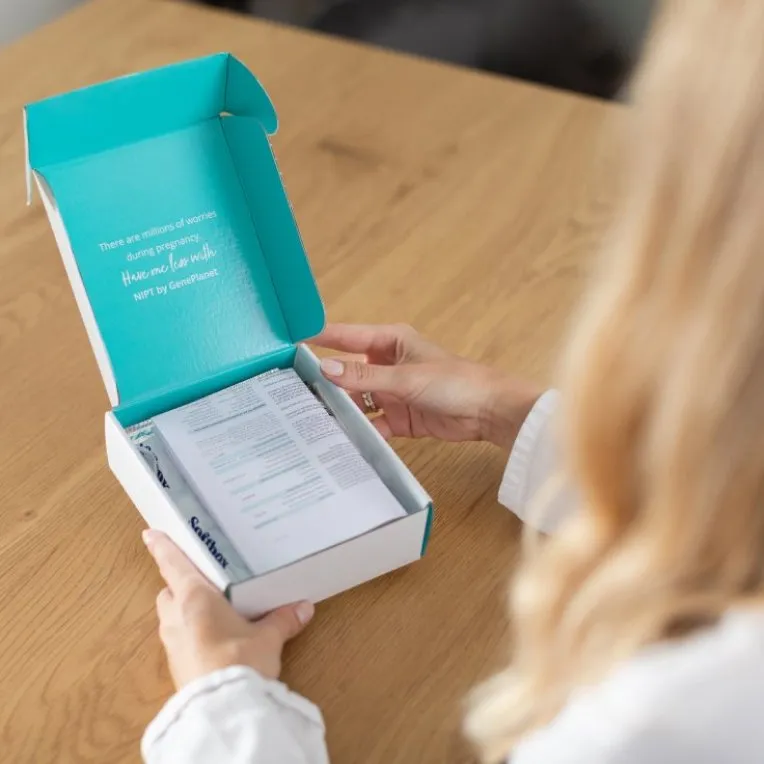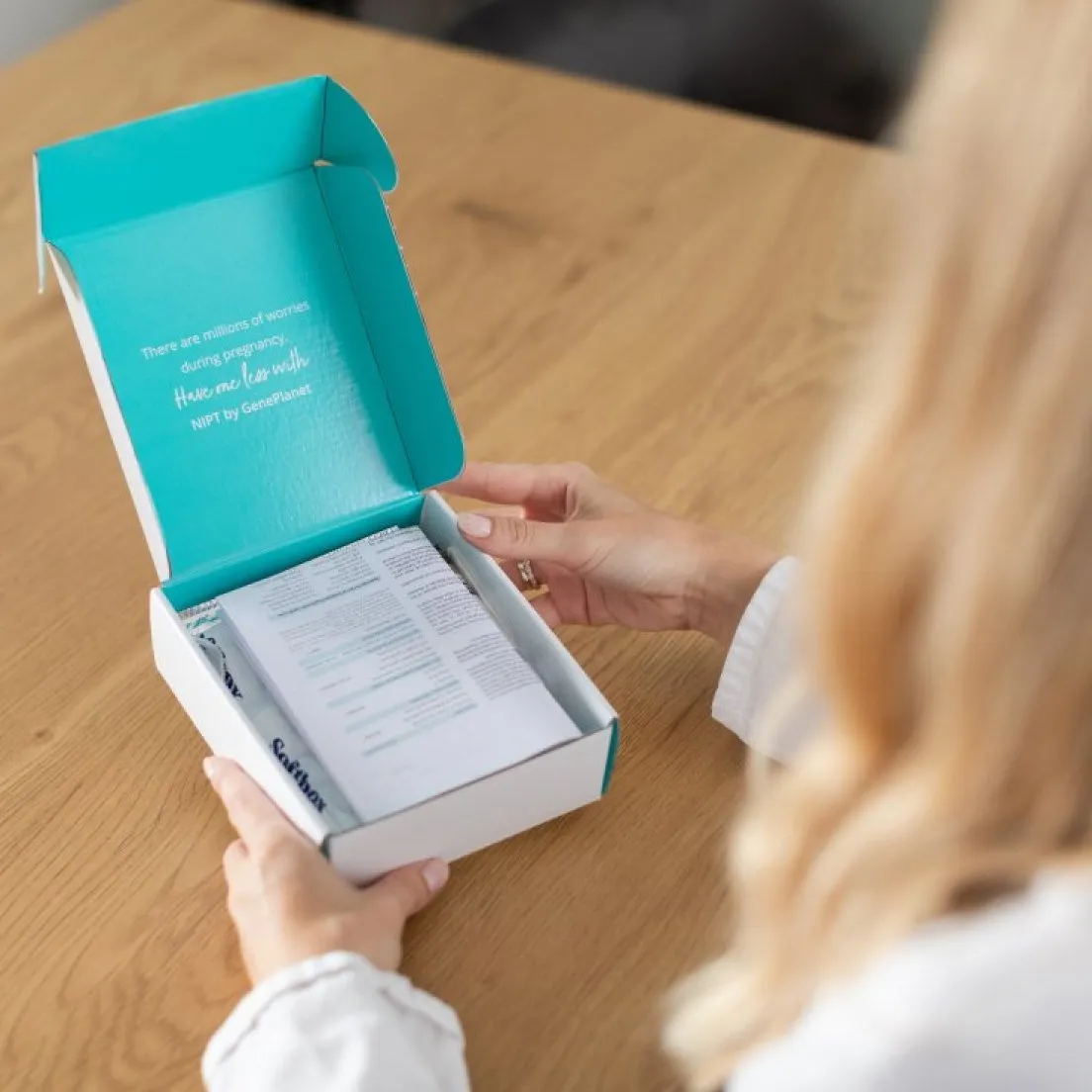NIPT Rh
Check your baby’s RhD status to avoid Rh disease
If a RhD-negative mother is pregnant with a RhD-positive child, it can lead to complications, known as Rh disease.


NIPT Rh checks the RhD status of your baby as early as week 10 of pregnancy. This will be the information for your doctor if you should proceed with the treatment to prevent the complications of Rh factor incompatibility.
If the NIPT Rh test indicates no risk, you can avoid unnecessary treatment with anti-D prophylaxis. However, if the test shows a risk, this information is essential for your doctor to manage your pregnancy effectively and take appropriate precautions.
NIPT Rh is only available as an add-on to your NIPT by GenePlanet test.

Who is it for?
Who is it for?
NIPT Rh is available for RhD-negative pregnant women.
What is Rh disease?
Complications due to Rh incompatibility are rare during a first pregnancy. Problems can arise in the second pregnancy if the woman is pregnant with another RhD-positive baby. In such cases, the mother’s immune system may produce antibodies that cross the placenta and attack the baby's red blood cells. This condition is known as Rh disease and can be life-threatening for the baby.
Rh disease is prevented with targeted anti-D prophylaxis.
Rh incompatible pregnancy
 Rh-negative blood cell Rh-positive blood cell
Rh-negative blood cell Rh-positive blood cell Sensitization
 Antibody
AntibodyNext pregnancy
 Antibody Rh-negative blood cell Rh-positive blood cell
Antibody Rh-negative blood cell Rh-positive blood cell How does the test work?
NIPT Rh test is performed from the same blood sample as the regular NIPT by GenePlanet test.
It can be done from week 10 of pregnancy.
It is available for singleton, twin, IVF, and donor egg pregnancies.
You will receive a separate report for the NIPT Rh analysis. The report will indicate if your baby is RhD positive or negative.

